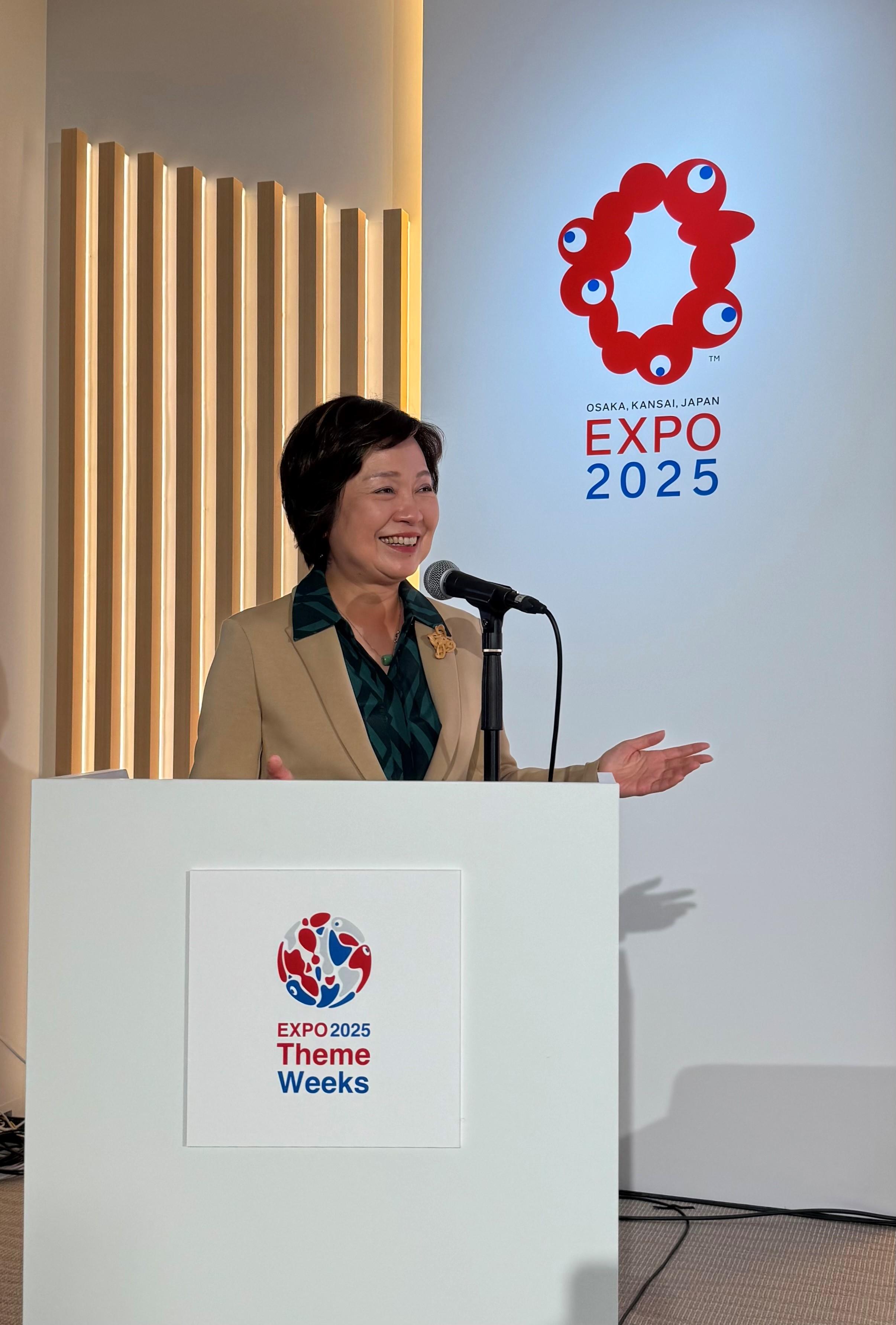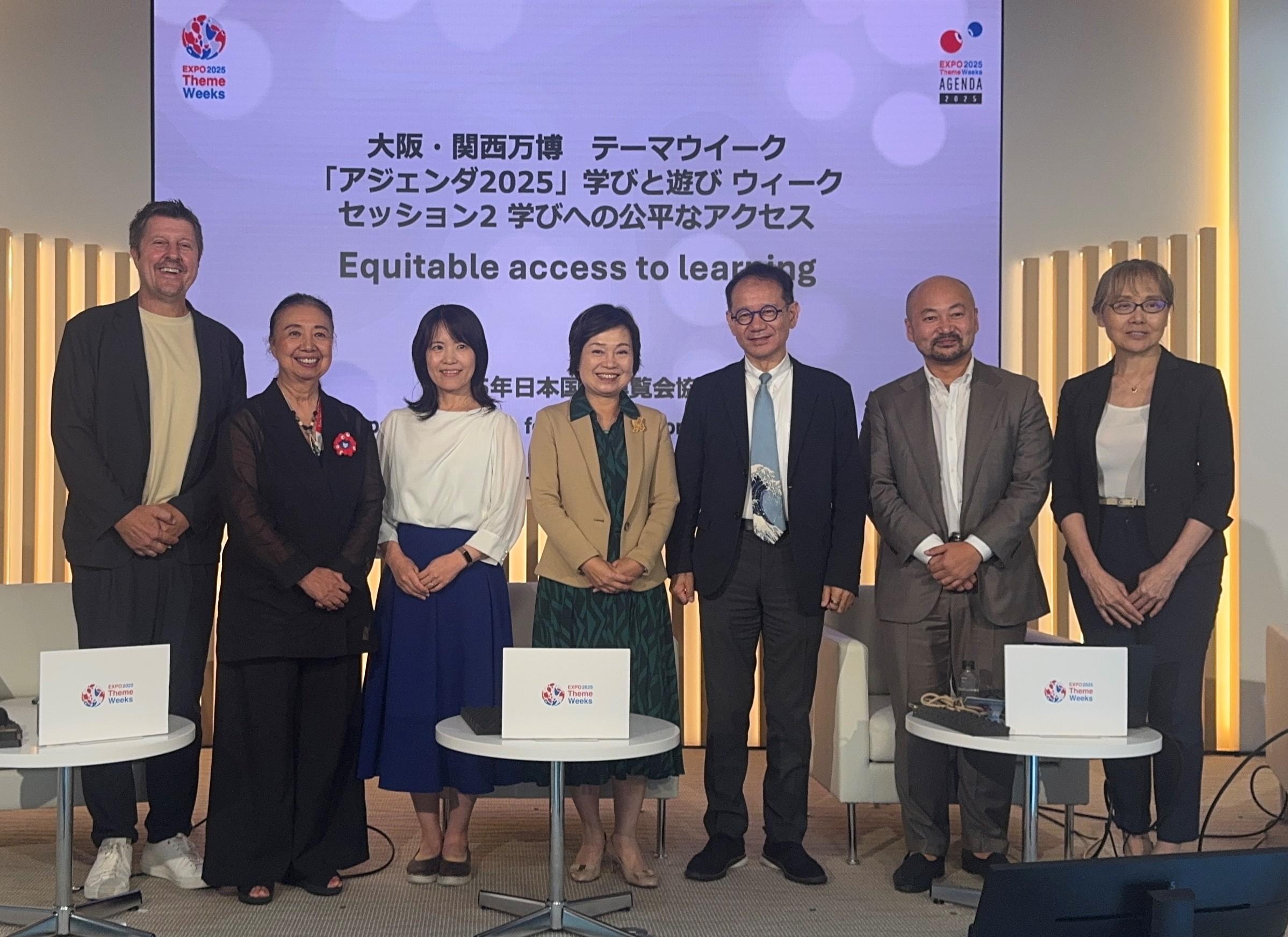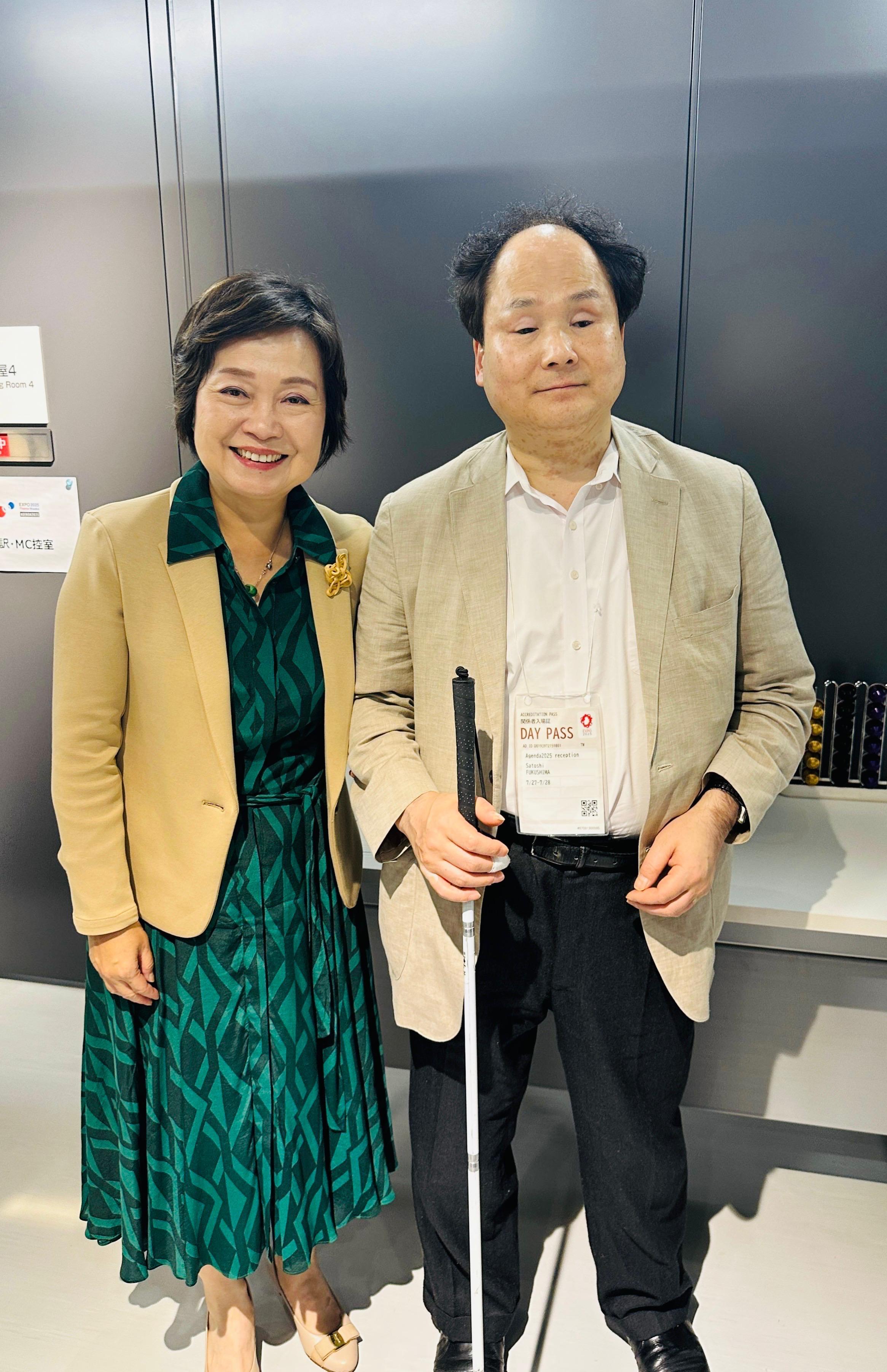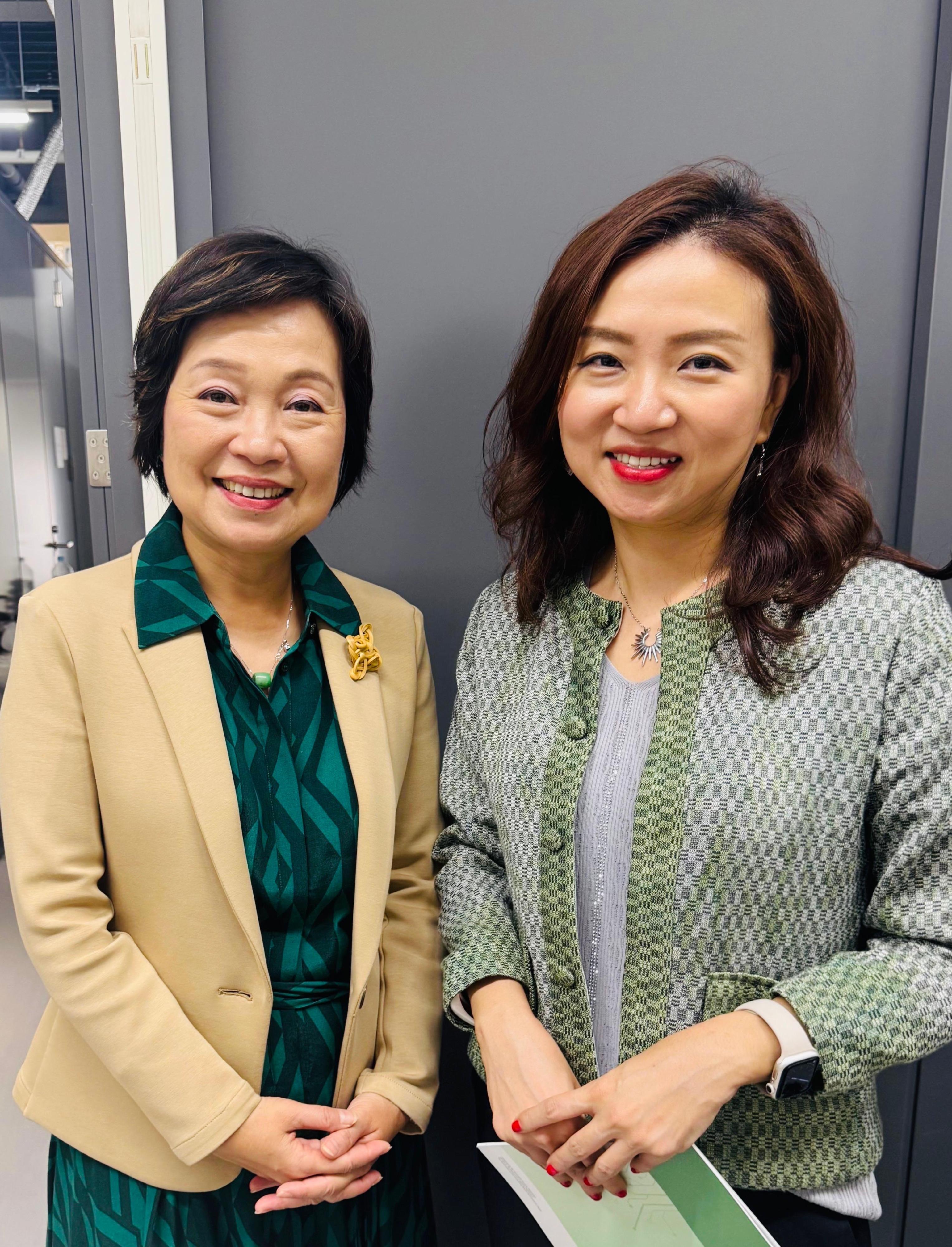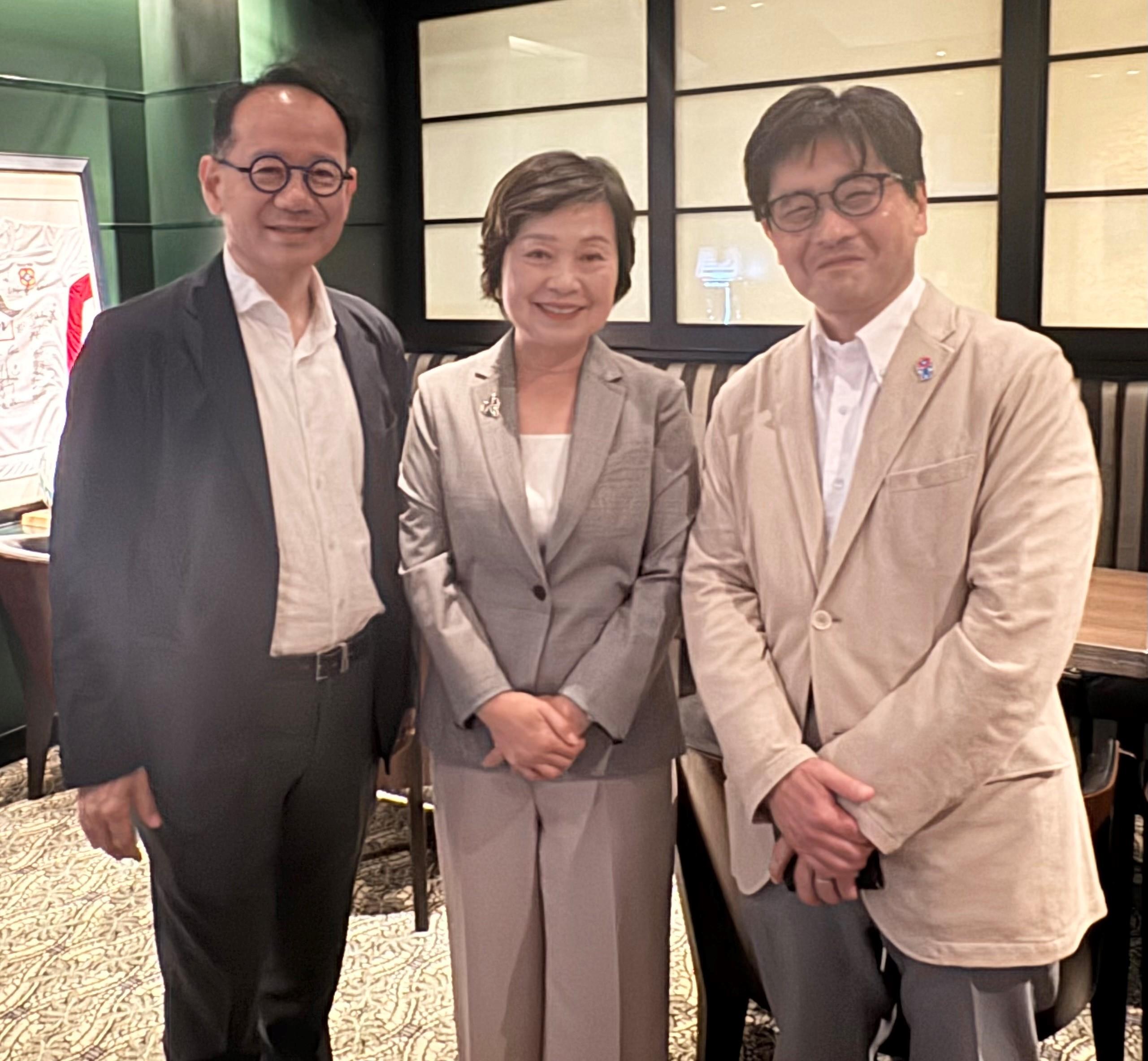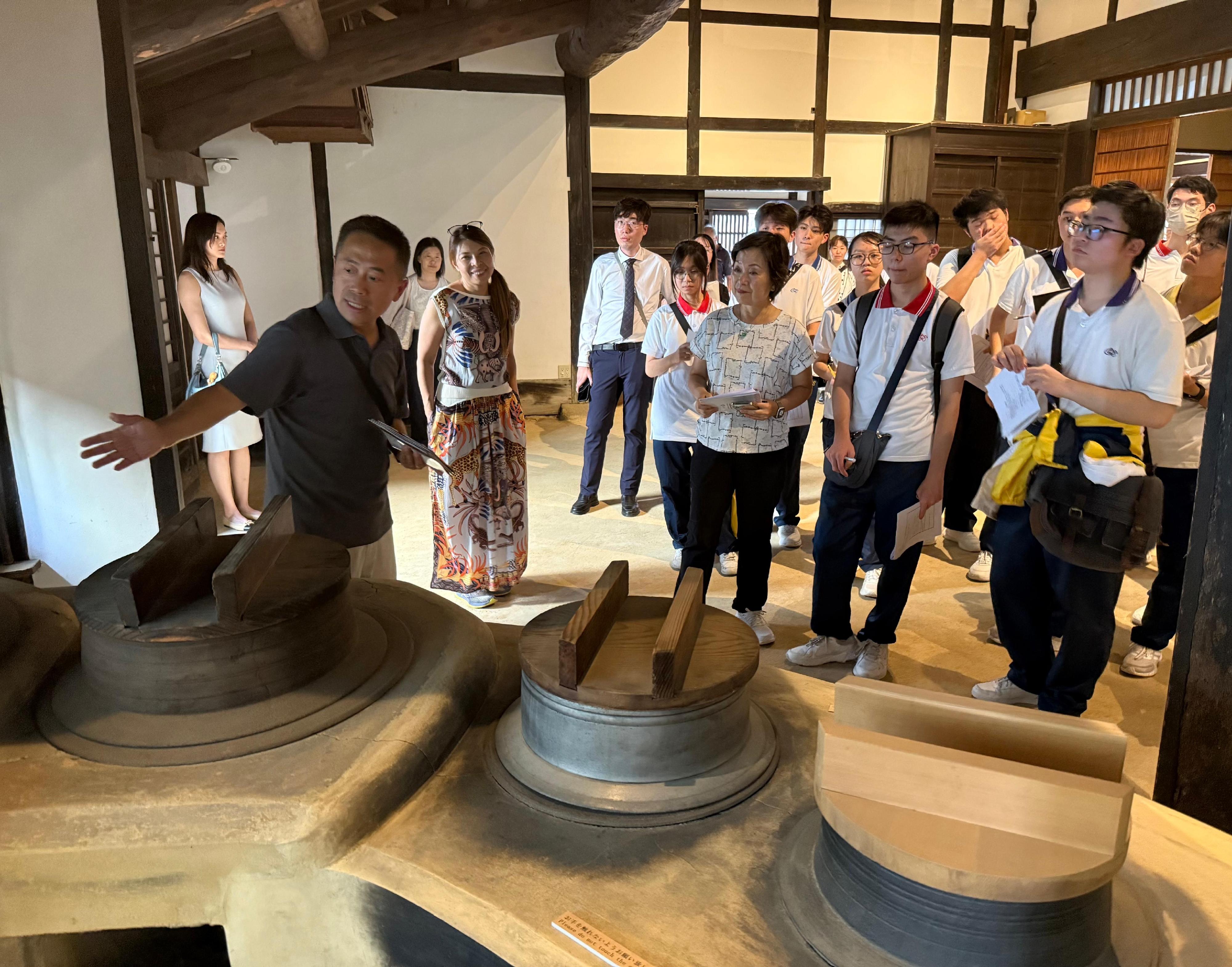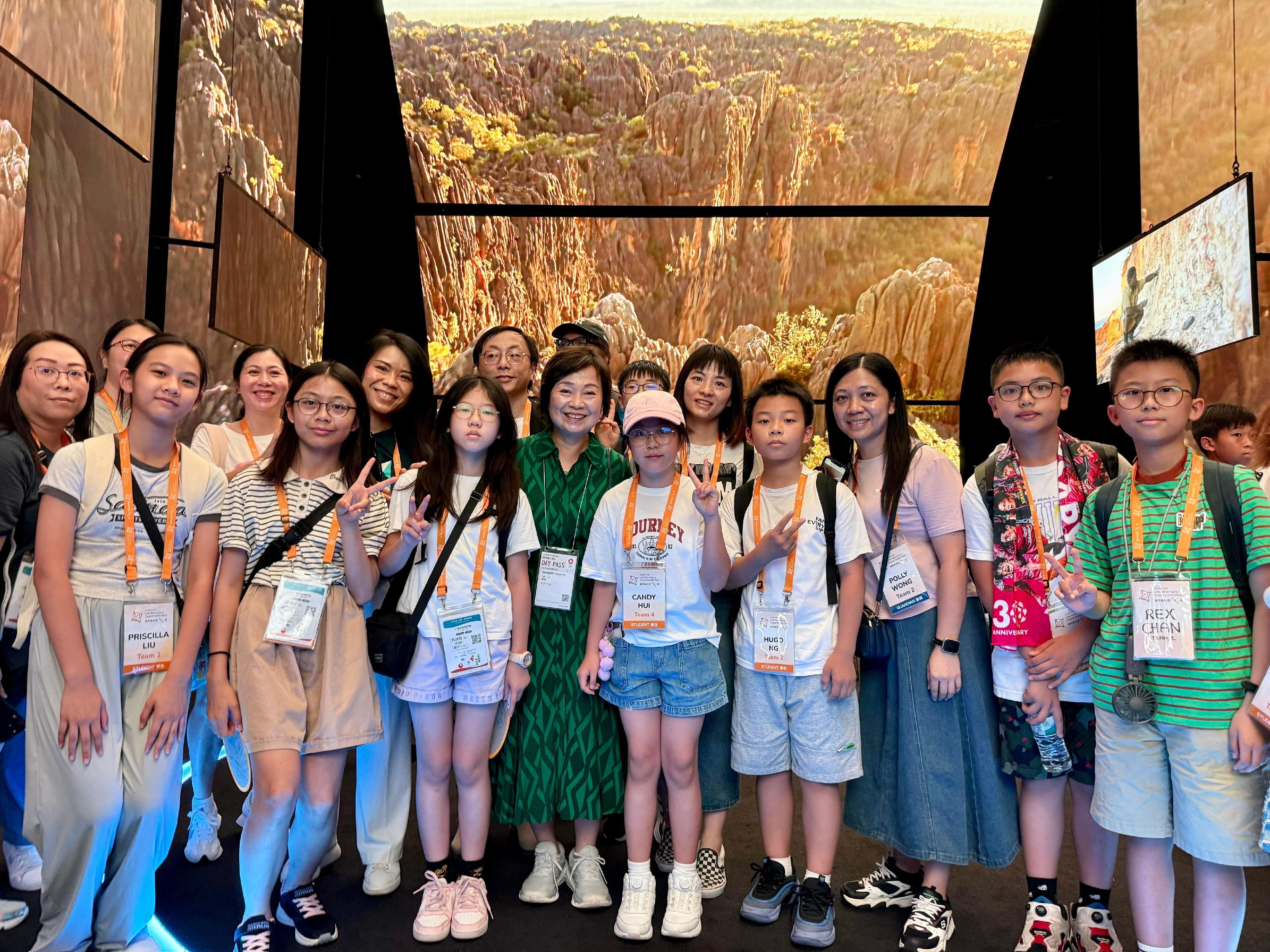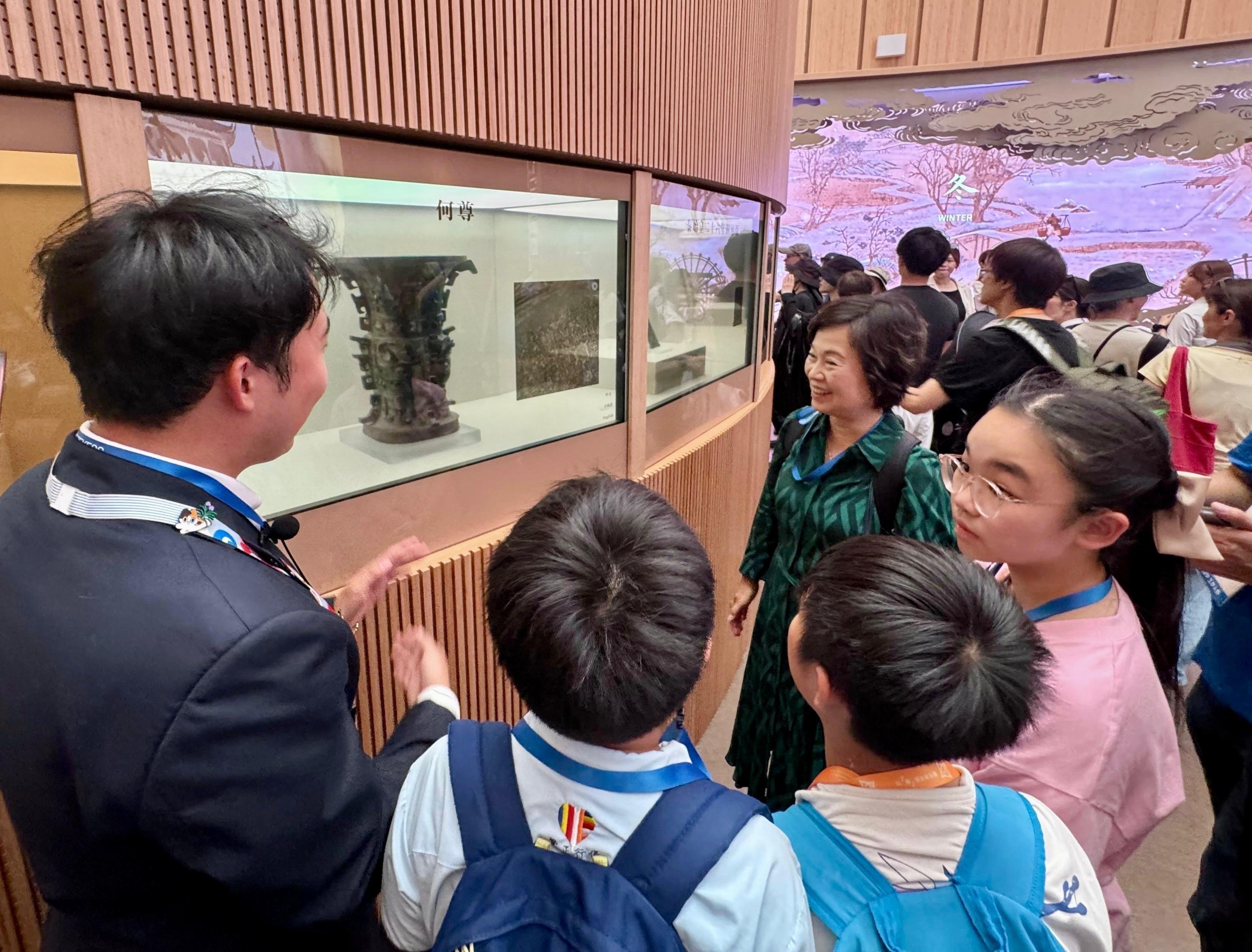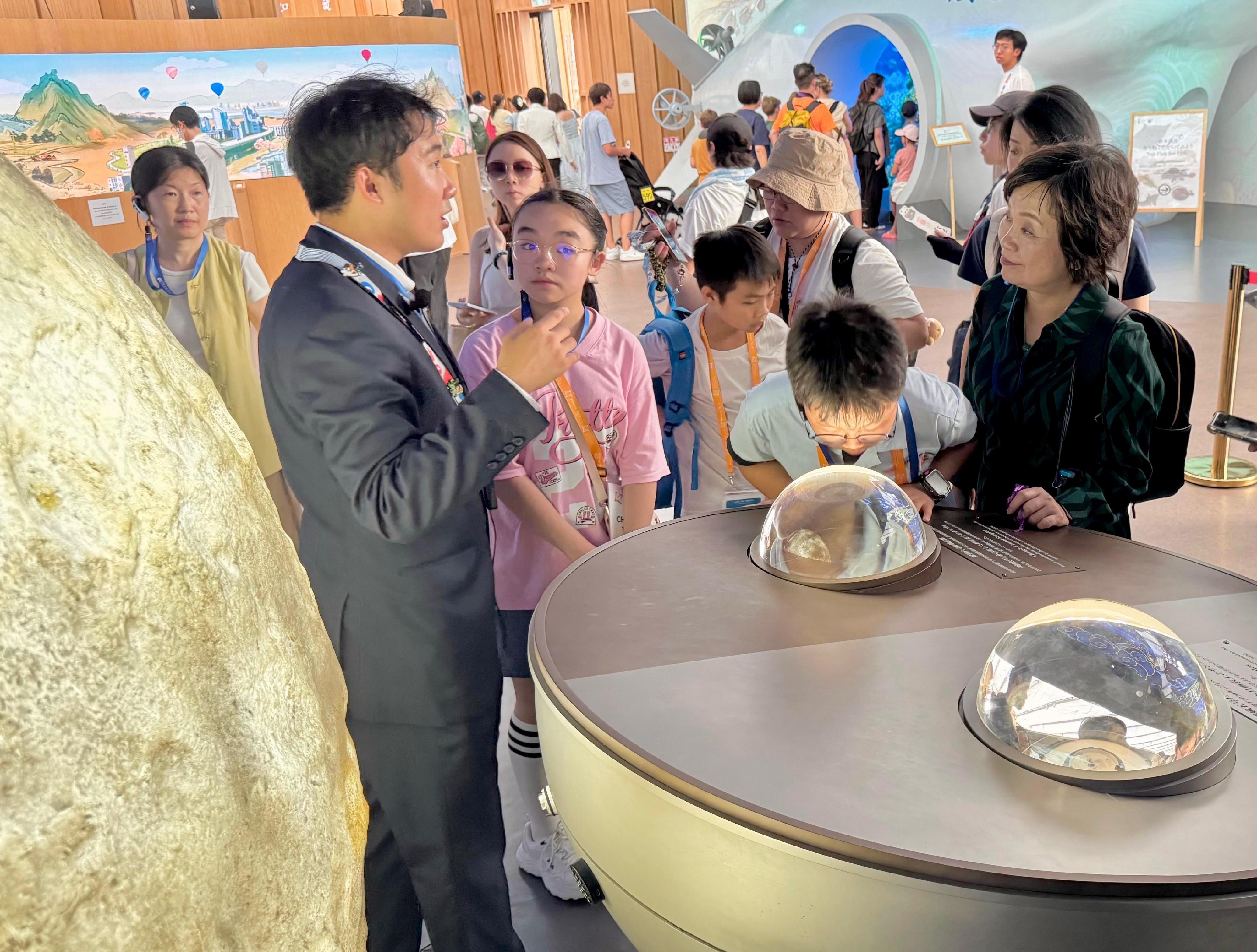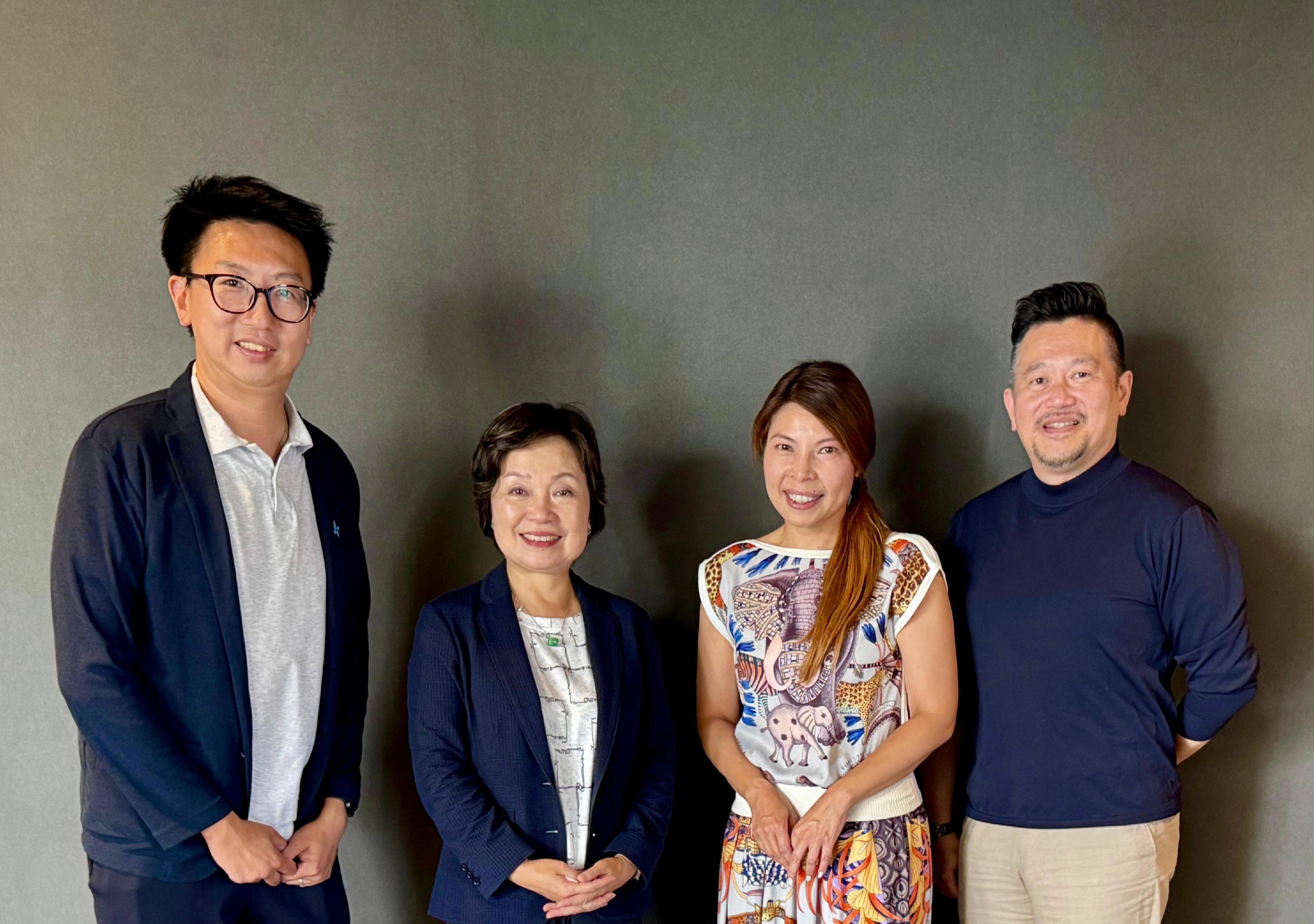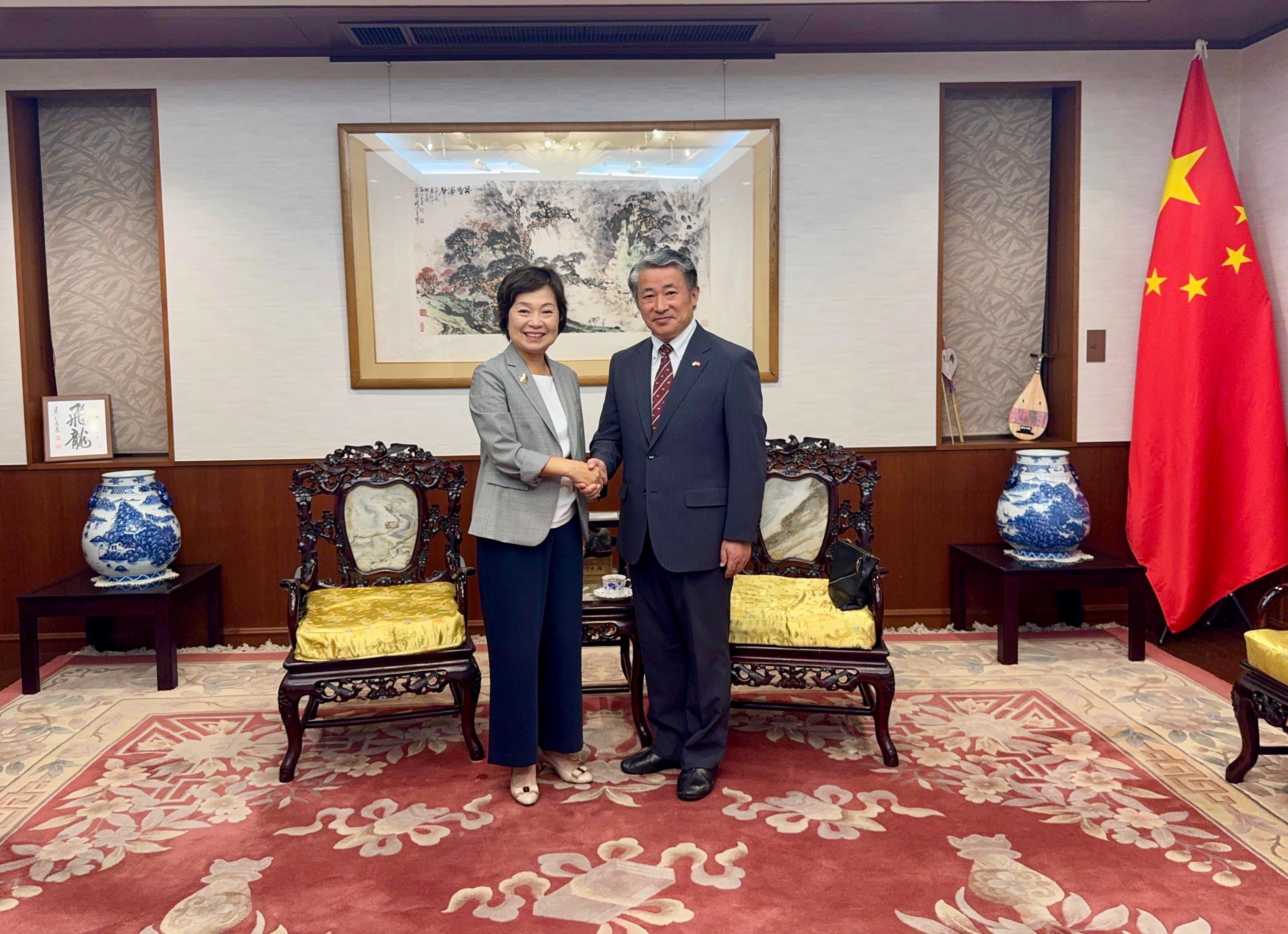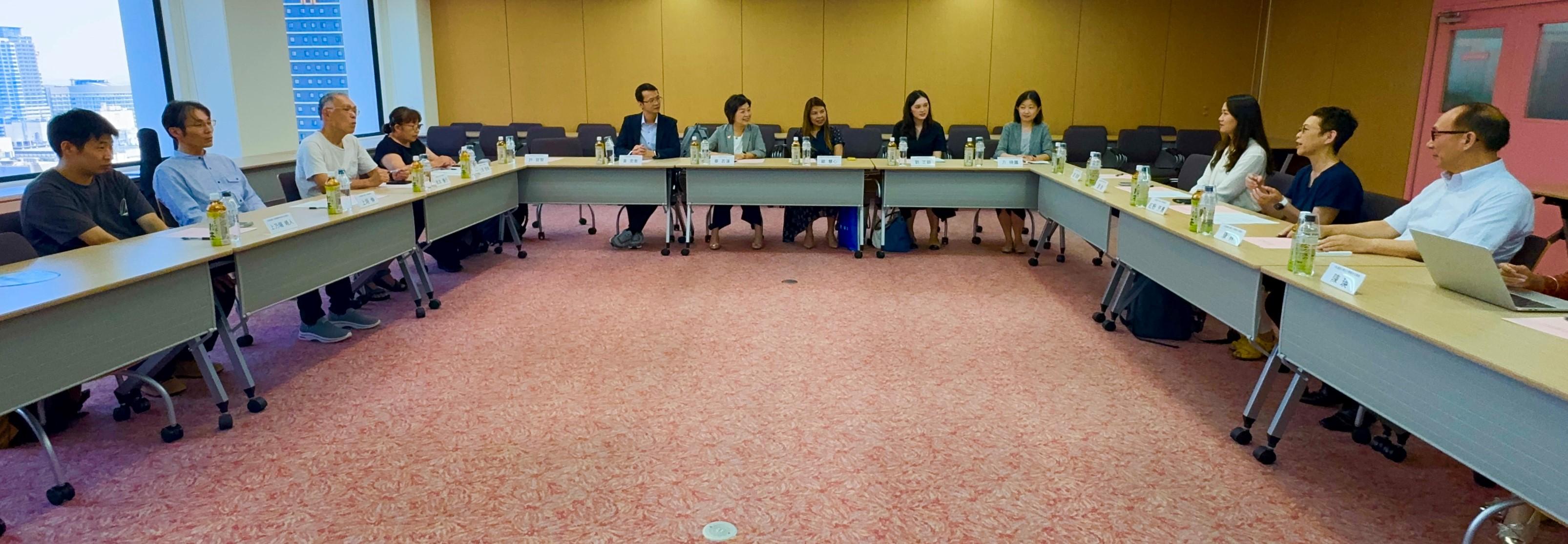SED shares Hong Kong's experience in achieving quality and equitable education in Osaka (with photos)
******************************************************************************************
The seminar, held on July 28, aimed at exploring how to guarantee equitable learning opportunities for all. In her speech titled "Provision of Quality and Equitable Education in Hong Kong", Dr Choi outlined Hong Kong's policy measures and achievements in providing quality and equitable education at the systemic levels.
Dr Choi said that the Government is committed to investing in education and ensuring equitable distribution of educational resources. In addition to providing 12 years' free primary and secondary education through public sector schools, it caters to individual differences and promotes whole-person development through diversified support mechanisms. According to the Programme for International Student Assessment (PISA) 2022 results, Hong Kong ranked second in educational equity among countries or economies with high academic achievements, indicating that the family socio-economic status of students had minimal bearing on their performance. Moreover, the Government has launched the Kindergarten Education Scheme to provide good-quality and highly affordable kindergarten education, enabling all children aged from 3 to 6 to access different modes of kindergarten education based on their needs. Currently, about 90 per cent of half-day kindergarten programmes are free of charge, while school fees for whole-day programmes are maintained at a low level.
On primary and secondary education, the Education Bureau (EDB) has developed a broad and balanced school curriculum framework that helps students build a solid knowledge foundation, nurture proper values and attitudes, and develop generic skills. A diverse range of life-wide learning activities is also provided to enrich students' horizons. Coupled with the Hong Kong Diploma of Secondary Education Examination (HKDSE) as the university entrance examination, the curriculum features flexibility and diversity, offering not only traditional academic subjects but also applied learning subjects for selection, which demonstrates the concept of convergence of vocational and general education and helps students plan their careers. Adopting the standards-referenced reporting system to report candidates' examination results, which is in line with the international standards, the HKDSE is widely recognised locally and abroad.
In the seminar, Dr Choi also talked about the EDB's targeted support for non-Chinese speaking (NCS) students and students with special educational needs (SEN). It has been providing NCS students, from pre-primary to secondary levels, with all-encompassing learning support to facilitate their mastery of Chinese language for integration into the community. The EDB is also dedicated to promoting an inclusive learning environment. It has been encouraging schools to adopt the Whole School Approach in supporting students with SEN and implement integrated education based on the spirit of "equal opportunities and teaching students in accordance with their abilities", enabling students with SEN to integrate into ordinary schools.
Dr Choi said that Hong Kong's post-secondary education is highly internationalised and diversified. The quality of teaching and learning is consistently ranked among the top in the international comparative studies, with five publicly funded universities ranking among the world's top 100. In addition to the Government's substantial subsidy for tuition fees (87 per cent), various universities provide scholarships, grants and loans to students to ensure that no qualified students will be denied access to higher education due to financial difficulties.
The Government is committed to developing Hong Kong into an international post-secondary education hub to provide students with broader international perspectives and attract more outstanding talent from around the world. At present, around one out of five students and 70 per cent of academic staff of publicly funded universities come from outside Hong Kong. These universities have also signed over 2 600 student exchange agreements with institutions around the world. In the 2025 ranking of the world's most international universities published by the Times Higher Education, Hong Kong's publicly funded universities achieved encouraging results by claiming all top four spots.
Furthermore, the Government has been actively promoting vocational and professional education and training. By developing universities of applied sciences, and supporting the Vocational Training Council and other post-secondary institutions' provision of post-secondary programmes of applied nature that blend theory and practice, the Government fosters co-operation between industries and education and collaboration between schools and businesses, and provides young people with diversified learning and employment opportunities as well as multiple pathways, with a view to nurturing more high-quality talent with applied knowledge and skills.
On July 27 and 28, Dr Choi met representatives from the United Nations Educational, Scientific and Cultural Organization, officials of the Ministry of Education, Culture, Sports, Science and Technology of Japan, representatives from several Japanese universities, and education representatives from other places attending the "Theme Weeks" of the Expo to discuss further education collaboration and exchanges.
On July 27, she exchanged views with a Hong Kong person working in the field of basic education in Japan to learn about the latest developments in Japanese basic education. On the same day, she visited the Sakai City Traditional Townhouse Museums together with Hong Kong secondary students participating in an exchange tour in Japan and learned about the students' experiential learning.
This morning, Dr Choi paid a courtesy call on the Consul-General of China in Osaka, Mr Xue Jian, to introduce Hong Kong's latest education policies. She also visited the Confucius Institute at Osaka Sangyo University and met its teachers and students to learn about the Institute's experience in promoting Chinese language studies and Chinese culture in Japan. Dr Choi will conclude her visit this afternoon and return to Hong Kong.
Ends/Tuesday, July 29, 2025
Issued at HKT 18:43
Issued at HKT 18:43
NNNN





